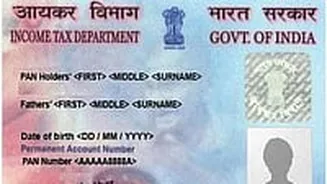Understanding Tax Exemptions
Taxpayers in India can significantly lower their tax burden by skillfully using available exemptions, especially on interest income. The Income Tax Act
offers several provisions that allow individuals to reduce their taxable income by declaring certain interest earnings. These provisions aim to provide relief to taxpayers and promote financial planning. Correctly claiming these exemptions is crucial to ensure that individuals pay the right amount of tax and avoid any penalties for misreporting income. The benefit of tax exemptions extends to various types of interest income, including those from savings accounts, fixed deposits, and other specified investments. This provides taxpayers with several options for optimizing their tax savings.
Section 80TTA Explained
Section 80TTA is a significant provision in the Income Tax Act, allowing individuals to claim deductions on the interest earned from savings accounts. Under this section, you can claim a deduction up to ₹10,000 on interest earned during the financial year. This is a popular exemption used by a large number of taxpayers every year. The deduction under 80TTA applies to interest earned from savings accounts held with banks, co-operative societies, or post office accounts. It is essential to note that this deduction is available only to individuals and Hindu Undivided Families (HUFs). It does not extend to companies or other types of entities. To claim this deduction, you must accurately report the interest income and the amount claimed as a deduction in your ITR. Be sure to retain any supporting documentation from your financial institutions, such as bank statements or interest certificates.
Section 80TTB Details
Section 80TTB of the Income Tax Act extends the benefit of tax exemption on interest income to senior citizens. This provision permits senior citizens to claim a deduction on the interest earned on deposits with banks, co-operative societies, and post offices. The deduction available under Section 80TTB is significantly higher than that under Section 80TTA. Senior citizens can claim a deduction of up to ₹50,000 on the interest earned during the financial year. This higher limit helps to provide greater tax relief to senior citizens, who often rely heavily on interest income. The eligible interest income under Section 80TTB includes interest from savings accounts, fixed deposits, and recurring deposits. To claim the deduction, senior citizens need to correctly report their interest income and the claimed deduction in their ITR. As with Section 80TTA, it's important to maintain relevant documentation to support the claim. Make sure to keep certificates issued by financial institutions.
ITR Filing 2025
Accurate filing of your Income Tax Return (ITR) is critical to claim tax exemptions on interest income. When filing your ITR, you'll need to declare all interest income you earned during the financial year. This includes interest from savings accounts, fixed deposits, and any other interest-bearing investments. Ensure that you use the correct ITR form applicable to your income sources and tax status. For instance, salaried individuals typically use ITR-1, while those with business income might use a different form. When you report the interest income, specify the amount eligible for deduction under sections 80TTA and 80TTB. Enter these amounts in the respective schedules of your ITR form. Double-check all the details before submitting your return to ensure accuracy. If you have any doubts, consider seeking assistance from a tax advisor or a chartered accountant to simplify the filing process and ensure compliance.
Claiming Exemptions Step-by-Step
To claim tax exemptions on interest income, gather all the necessary documents, including bank statements, interest certificates, and any other supporting financial records. These documents serve as proof of your income and the interest earned. When filing your ITR, correctly fill in all relevant details in the schedules for claiming deductions under Section 80TTA and Section 80TTB, as applicable. Be precise about the amounts to be claimed, referring to your gathered documents for accuracy. Review your completed ITR form thoroughly before submission to confirm that all the information is accurate and that you've included all the required deductions. If you are unsure, consult a tax advisor. After submitting your ITR, keep a copy of your filed return and all supporting documents for future reference. These documents can be required if the tax department requests them. It is good practice to retain all your tax-related documents.
Missed Deadline Consequences
Missing the deadline for filing your Income Tax Return can have severe consequences. According to Indian tax laws, late filing can lead to penalties, including interest on the unpaid tax amount. The amount of the penalty varies depending on how late the return is filed. Aside from penalties, missing the deadline can prevent you from claiming certain deductions and exemptions, like those under Section 80TTA and 80TTB. This can result in a higher tax liability and a potential loss of tax savings. It’s essential to file your return before the due date to avoid penalties and ensure that you can avail of all available benefits. The deadline for filing ITR for the assessment year is typically July 31st. However, this can be extended by the government. Make sure you keep yourself updated with the latest tax deadlines.














